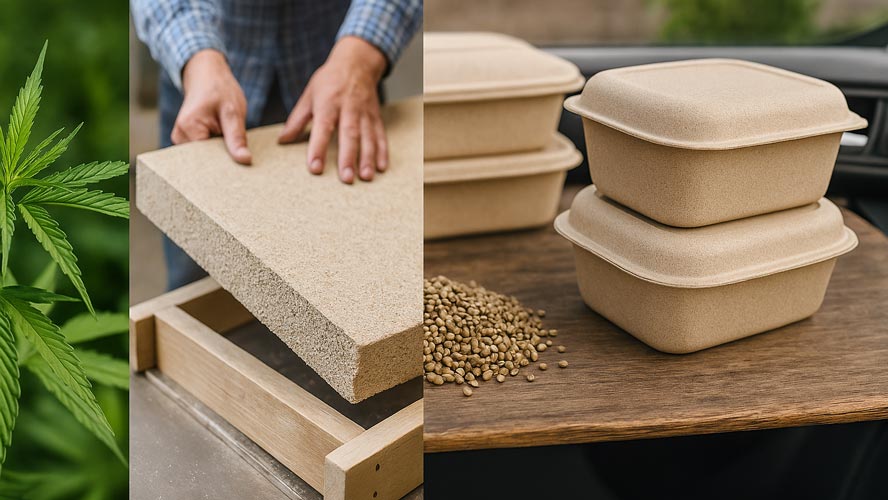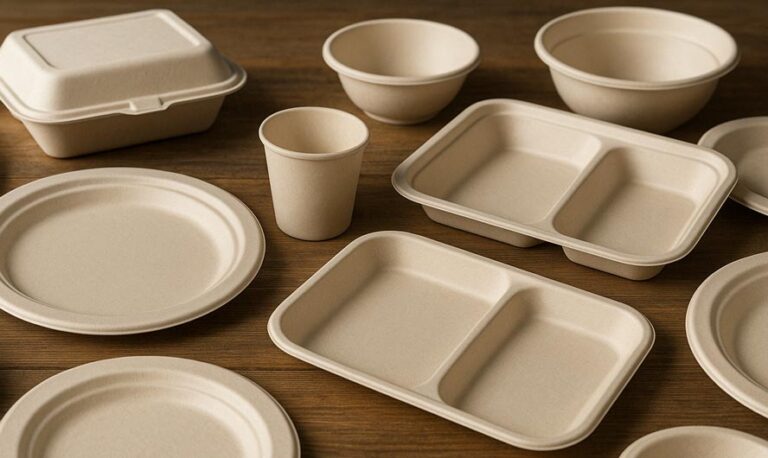Another Brilliant Plastic Pollution Solution: Hemp-Based Bioplastics!

When it comes to solving Australia’s plastic pollution problem, hemp is stepping into the spotlight — and it’s about time! 🌿 Hemp-based bioplastics offer a clean, green, and bloody brilliant alternative to traditional plastics, and the best part?
Australia is already primed to become a world leader in it.
Let’s break it down. Industrial hemp is fast-growing, tough as nails, and incredibly versatile. It’s been legal to farm in Australia since 2017, and is now actively grown in Western Australia, New South Wales, Tasmania, and Queensland. Unlike cotton, hemp needs far less water, doesn’t hammer the soil, and shrugs off pests without needing tonnes of chemicals. It’s a plant that gives a lot more than it takes — making it perfect for a sustainable future.
Hemp fibres and hurds (the woody core) can be processed into biodegradable plastics that can replace fossil-fuel plastics in everything from food packaging and car parts to containers and even building panels. Imagine walking into Bunnings one day and picking up hemp-based buckets, mulch sheets, or even storage tubs — all fully compostable at end of life. That’s the kind of future we could have if we back this industry now.
Right now, Australia exports a lot of its raw hemp — we grow the stuff but then send it overseas where someone else gets rich turning it into value-added products. That’s crazy! We should be setting up hemp processing hubs in regional areas, adding value right here at home. Local farmers, local jobs, local profits. Regional Australia could boom, while helping clean up the planet at the same time. Win-win!
If you want to see how real this potential already is, check out these Aussie trailblazers:
-
Ecofibre Limited – https://ecofibre.com/
Based in Queensland and the USA, Ecofibre is one of the pioneers working in hemp fibres and innovation. -
Hemp Foods Australia – https://hempfoods.com.au/
Based in Bangalow, NSW, they focus on edible hemp, but show how serious the market for hemp products is already here. -
Good Earth Hemp – https://goodearthhemp.com.au/
Western Australian growers and processors pushing Australian hemp farming forward. -
Australian Primary Hemp – https://ausprimaryhemp.com.au/
Based in Victoria, showing the expanding footprint of the hemp economy beyond just niche markets.
Globally, companies are already using hemp-based composites to replace traditional plastics in car door panels, dashboards, and interior fittings — with giants like BMW and Mercedes-Benz getting in on it. Why the hell should Germany lead the way when we’re sitting on the best farmland and some of the smartest innovators on Earth?
We need to throw our weight behind this — not just as consumers, but as voters, as entrepreneurs, and as community leaders. Every time you push for hemp-based materials in packaging, construction, and consumer goods, you’re pushing for an Australia that’s cleaner, wealthier, and more future-ready.
Action Tip:
Get vocal with your local council and your state MP. Push for hemp processing hubs in regional areas — places where farmers can send their hemp to be turned into value-added goods, not just sold raw. We could power up regional economies that have been doing it tough and create a clean industry that future generations will thank us for.
Bottom Line:
Plastic pollution is a disaster — but hemp is one of the simplest, clearest, and most natural solutions we’ve got. Australia already has the farms, the laws, and the know-how.
Now we need to turbocharge the industry, value-add locally, and build a future we can actually be proud of.
Let’s get cracking, Australia!


